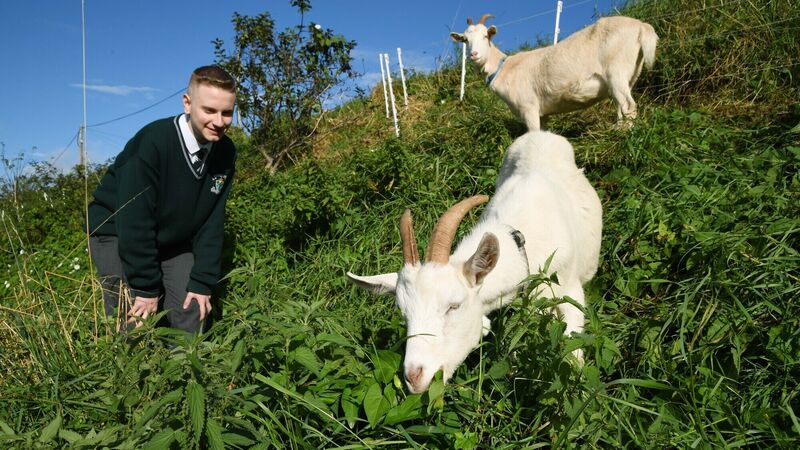Watch: The goats let loose - Rescued animals to clear Cork school's wasteland

Students Simone Pacifico checking on the goats from Billy's Rent a Goat which are helping to maintain an area in a land management project at Coláiste Chríost Rí, Cork. Picture: Denis Minihane.
Rescued goats will visit a Cork school this week to munch their way through briars and bindweed to clear wasteland for a wildflower meadow.
West Cork man William Walsh and his team of goats are tackling the overgrowth at Coláiste Chríost Rí in Turner's Cross in Cork City while educating pupils about sustainable land management.













